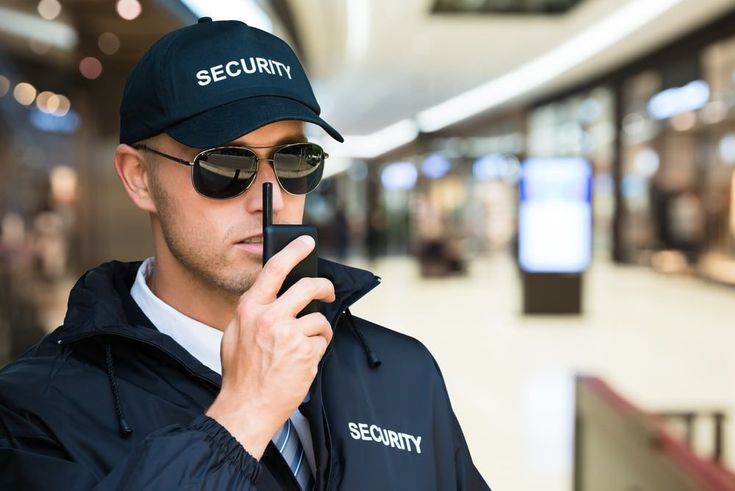In today’s fast-paced retail environment, ensuring the security of your store is more important than ever. As technology continues to evolve, so do the methods and systems for protecting your business. It is no longer just about preventing shoplifting. It now encompasses a wide range of strategies, from cybersecurity to physical protection, to keep your customers, employees, and products safe.
Alpine Protection Services
Alpine Protection Services stands out in the security industry by offering tailored services that address the unique needs of each client. Whether it’s for residential, commercial, or specialized security requirements, Alpine Protection Services excels in designing customized security plans that enhance safety and efficiency. Their team of experienced professionals uses cutting-edge technology and innovative strategies to ensure robust protection against a range of threats. By focusing on personalized service and proactive risk management, Alpine Protection Services provides peace of mind, ensuring that clients receive the most effective security services for their specific circumstances.
The Role of Technology in Retail Security
The future of security is deeply intertwined with the rapid advancements in technology. From AI-powered surveillance cameras to facial recognition software, technology is transforming how retailers approach security. Smart systems can now detect suspicious behavior in real-time, providing quicker responses to potential threats. In addition, keyless entry systems and biometric authentication help secure sensitive areas within stores, making internal theft harder to execute. As technology continues to evolve, retailers must stay informed and updated to keep their security systems cutting-edge and effective.
The Importance of Cybersecurity
Cybersecurity has become a critical element of retail security as more businesses move online. The rise of e-commerce and digital payment methods has increased the risk of cyberattacks, such as data breaches and payment fraud. Retailers must protect their point-of-sale (POS) systems and ensure that customer information is safely encrypted. By implementing strong cybersecurity measures like data encryption, two-factor authentication, and staff training, businesses can defend themselves against digital threats and ensure customer trust.
Employee Training
Even with the best technology in place, human error remains one of the leading causes of security breaches. That’s why employee training is essential for security. Staff should be educated on how to spot suspicious activity, handle emergencies, and use cybersecurity best practices. Well-trained employees act as the first line of defense against both in-store theft and online fraud. Regular training sessions can ensure that your team stays alert and up-to-date with the latest security protocols.
E-Commerce and Its Impact
The shift to online shopping has expanded the definition of retail security beyond just protecting physical stores. Retailers now need to focus on securing their e-commerce platforms to prevent fraud, data breaches, and chargeback scams. Fraud detection software can help identify suspicious transactions, while secure delivery methods ensure products reach customers without being tampered with. By combining both digital and physical security measures, retailers can safeguard their entire operation and adapt to the growing e-commerce market.
Data-Driven Approaches
The future of security will increasingly rely on data. Retailers can use data analytics to understand customer behavior, identify patterns of theft, and optimize store layouts for better security. For example, tracking purchasing trends or monitoring return patterns can help flag fraudulent activities. In addition, predictive analytics can forecast potential security threats, allowing retailers to take proactive measures. Data-driven security strategies give businesses a significant advantage in protecting their assets.
Sustainability
Sustainability is becoming an important consideration in security. Energy-efficient security systems, such as solar-powered alarms and LED surveillance lighting, not only reduce energy consumption but also lower operational costs. In addition, retailers are moving toward eco-friendly packaging solutions that also ensure product safety. By integrating sustainability into their security practices, businesses can reduce their environmental footprint while maintaining high security standards.
Collaboration with Law Enforcement
Retail security isn’t just about what happens inside the store—collaborating with law enforcement can enhance overall protection. Many retailers are adopting real-time communication systems that allow them to quickly notify local authorities in case of an incident. Sharing data with law enforcement can also help identify repeat offenders and prevent future crimes. This collaborative approach fosters a safer retail environment and strengthens the relationship between businesses and local communities.
The Integration of AI
Artificial intelligence (AI) is transforming the future of security by enhancing real-time monitoring and predictive analysis. AI-powered cameras and software can now detect suspicious behavior, such as unusual movement patterns or loitering, and instantly alert security teams. These systems reduce the need for constant human monitoring and can minimize errors in threat detection. Moreover, AI helps in analyzing vast amounts of security footage more efficiently, allowing retailers to respond faster to potential security breaches. As AI continues to evolve, its role in security will only become more prominent, offering smarter, more proactive solutions.
Customer Privacy
As advanced security technologies, such as facial recognition and biometric authentication, become more common, retailers must balance security with customer privacy. While these systems enhance security by identifying repeat offenders or preventing unauthorized access, they also raise concerns about how customer data is stored and used. Retailers must ensure they comply with privacy laws and regulations, offering transparency to customers about data usage. Establishing trust by safeguarding customer data will be crucial in maintaining a positive relationship between security advancements and consumer protection.
Conclusion
The future of retail security is evolving rapidly, with new technologies and strategies emerging to protect both physical stores and online platforms. From advanced surveillance systems to cybersecurity measures, the landscape of security is becoming more sophisticated. Retailers must stay informed about these trends and adopt the latest security services to protect their businesses, customers, and employees. As the industry continues to evolve, integrating security into every aspect of your business is essential for long-term success. Whether it’s through technology, employee training, or collaboration with law enforcement, retailers have more tools than ever to ensure a safe and secure shopping experience.



